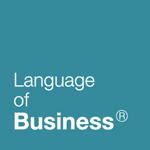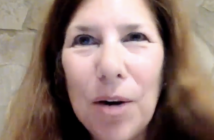Since this is my first entry, I would like to write about languages in business from an interpreter’s perspective. I have worked as an interpreter for Japanese and English for numerous companies, and in various industries. From M&A negotiations, to intellectual property violation cases, and to quarterly board of director meetings, I have been very fortunate to witness, and participate in, many different kinds of businesses. What I would like to share with you today is one of many thoughts on the value of languages I have had as an interpreter.
This is about sincerity. For formal and official discussions, it pays to have a professional interpreter. But before a meeting begins or during a break, successful business people are those who can establish a good personal rapport, and try to communicate with others, even in an unfamiliar foreign language. For example, one of the Japanese executives I often work for completely relies on me during a business meeting. But once a break starts, he tries his best to talk with the other executives in English. It is broken English with a heavy Japanese accent. But, his sincerity is clear. Everyone can see he genuinely wants to talk and discuss. He wants to know how you are doing. He wants to know how your last vacation trip went. I have seen a strong sense of trust build from these attempts and interactions.
You don’t need to be able to speak a foreign language fluently. When someone tries to speak to you in your language, it means a lot to you. If someone asks me to interpret during a break, of course I am available. But when possible, I encourage them to use me as a dictionary so they can remember words and expressions and to communicate in a foreign language. Breaks are not language school classes. You can make mistakes.
— Yuya Kiuchi
第1回目の投稿ですから、ビジネスと言語というテーマに沿って通訳者の立場から書きたいと思います。これまで様々な業種の企業で、日英通訳者として仕事をしてきました。吸収合併の交渉から、知財権訴訟や取締役会まで、色々なビジネスを経験することができました。今日ここで書きたいのは、そのような通訳者としての経験を元に思うことです。
誠実さについてです。公式の話し合いを行う場合、プロの通訳者を使うことが薦められます。しかし会議前や休憩時間中には、慣れない外国語であっても自分でコミュニケーションと取ろうとする人が、ビジネスにおいてよい結果を残しているようです。例えば、私がよくお仕事をする日本人の取締役員がいます。会議中は私の通訳に頼りますが、休憩時間が始まると自ら英語で他の役員と話をします。間違えがあり、日本語の訛りがある英語ですが、彼の「話したい」という誠実さは伝わります。相手の様子を気にし、休暇はどうだったかとたずねたりするのです。その結果、強い信頼関係が生まれるのを私は目にしました。
外国語を流暢に話す必要はありません。外国語で話す努力は、相手にその気持ちが伝わるものです。休憩時間に通訳が必要であれば、もちろん対応します。しかし状況が許すなら、知らない単語や表現を私がサポートするのみで、自分で話してみることを進めます。休憩時間は外国語の授業ではないのですから。間違えをしていいのです。
— 木内裕也




